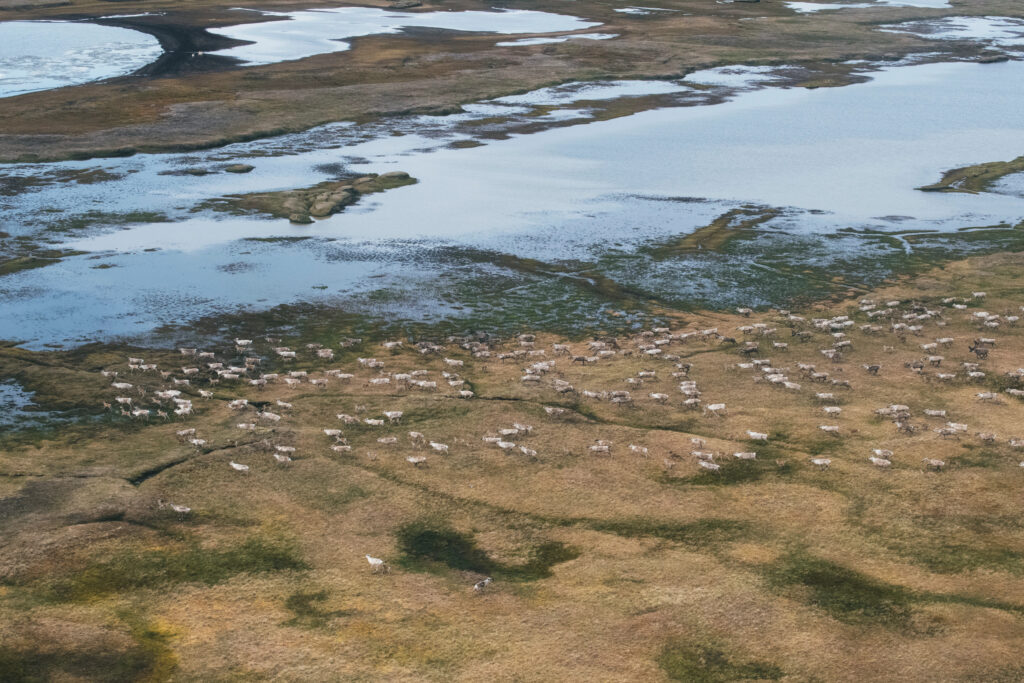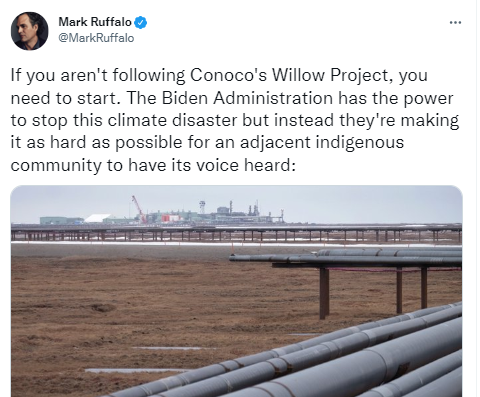Calling President Biden to Fulfill Climate Promises: Are You Hearing This?

Willow development could greatly harm Teshekpuk Lake and wildlife that rely on this ecosystem.
Photo Credit: Kiliii Yuyan
The Biden administration is getting an earful from the public urging it to stop the Willow Master Development Project in the National Petroleum Reserve-Alaska (Reserve). In addition to heavily outnumbering pro-oil industry voices at public hearings throughout the public comment period, high engagement by Alaska Wilderness League staff, supporters and partners prompted the administration to arrange an extra meeting when officials could not initially accommodate all the public testimony.
In addition, 106 climate and environmental scientists signed on to a comment letter opposing Willow. Alaska Wilderness League led the charge in submitting 227,065 coalition comments opposing Willow, with League supporters alone generating over 10 percent of those comments.
Everyone who testified against Willow sent a clear message: The administration cannot just rubberstamp massive, dirty and dangerous drilling projects without public scrutiny. A few of these statements are included below, starting with an unofficial tweeted comment by celebrity Mark Ruffalo:

“The proposed Willow project will affect globally important ecosystems for decades, and lock in the United States on an oil and gas track that can push local communities and species over the edge,” testified Peter Winsor, executive director for Alaska Wilderness League. “Investing in new oil and gas infrastructure in areas that are most affected by ongoing climate change effects is going against President Biden’s entire clean energy plan on public lands and waters. In my 30 years of working in the Arctic, I have never seen a proposed development plan with larger negative impacts on biodiversity and ecosystem health.”
“While the analysis of the agency is insufficient on the climate front for Willow, the global consensus on climate science has made it clearer today than ever before that our window to act is closing,” testified Andy Moderow, state director for Alaska Wilderness League. “Public lands must be part of our country’s climate solution.”
“The Willow project is the largest oil extraction project proposed on federal lands today,” testified Maddie Halloran, manager of Alaska campaigns for Alaska Wilderness League. “This single project will add millions of tons of pollution to the atmosphere, and would produce nearly double the planet-warming emissions that President Biden’s entire clean energy plan on public lands and waters is meant to prevent in the next decade.”
“Although I am an American presently located abroad, atmospheric pollution does not discriminate and does not remain where it is created,” testified Naomi Zurcher, an Alaska Wilderness League member who identified as an American living abroad. “As a forestry professional, I am totally opposed to the Willow project not just because of the exponential increase in the resulting greenhouse gas emissions but because of the irreparable damage to a unique publicly owned environmental treasure as well as the destruction of Indigenous sacred lands, their culture and way of life.”
“The scarcest resource in the United States is wide expanses of relatively intact wild landscapes that, despite growing threats, still maintain much of their ecological functioning,” testified Patricia Benjamin, an Alaska Wilderness League member who identified as a retired college professor. “Teshekpuk Lake, for one, is a national treasure. As the largest land management agency in the United States, the Bureau of Land Management should be focused on stewarding these treasures, not rushing to industrialize and pollute the last remaining unspoiled places. We are valuing the wrong things if we think that wildlands should be sacrificed to oil production.”
The Willow project would produce 180,000 barrels of oil per day for at least 30 years, adding 287 million metric tons of carbon pollution to the atmosphere. Put in perspective, that’s putting back into the atmosphere roughly 1/3 of the carbon pollution the Inflation Reduction Act would cut by 2030.
Despite its substantial impact on our climate and local communities, the Bureau of Land Management’s (BLM) draft supplemental environmental impact statement (SEIS) comment period for ConocoPhillips’ Willow Project ended August 29, 2022 – allotting the shortest comment period legally possible. And, it’s skewed toward development. While the SEIS evaluates various alternatives, it does not address significant errors that caused it to be struck down in August 2021 by the U.S. District Court for Alaska.
Although the comment period has ended, Alaska Wilderness League continues the fight to stop the Willow climate disaster. The above quotes are just a fraction of the testimony provided against the massive Willow project – thanks to all who took the time to weigh in!
